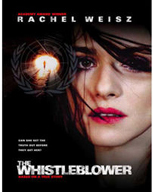 Russian Foreign Minister Sergey Lavrov shakes hands with Secretary of State Hillary Rodham Clinton, at the State Department in Washington, Wednesday, July 13, 2011.AP
Russian Foreign Minister Sergey Lavrov shakes hands with Secretary of State Hillary Rodham Clinton, at the State Department in Washington, Wednesday, July 13, 2011.AP
July 14, 2011 at 06:41 | Associated Press
WASHINGTON (AP) — The United States and Russia ended an ugly dispute over the abuse of adopted Russian children on Wednesday, with Washington signing an agreement that will increase oversight of adopting families to curtail possible maltreatment.
Secretary of State Hillary Rodham Clinton and Russian Foreign Minister Sergey Lavrov signed the accord in a ceremony in Washington.
Russia has been complaining for several years about cases where adopted Russian children had been abused in the U.S. The "last straw" — as Lavrov had put it — came in April 2010 when an adoptive mother from Tennessee sent her 7-year-old boy unaccompanied on a plane back to Moscow because she did not want to raise him anymore.
Russia threatened to suspend adoptions to the U.S., though it did not in fact do so, and insisted that U.S. officials negotiate a bilateral deal enabling Russian authorities to track the welfare of Russian adoptees more closely.
"We take very seriously the safety and security of children that are adopted by American parents," Clinton told reporters. "This agreement provides new, important safeguards to protect them. It also increases transparency for all parties involved in the adoption process."
The deal stipulates that adoption agencies can operate in Russia only with the authorization of the country's government, except in cases where a child is being adopted by relatives.
Better information will also be provided to prospective parents about the social and medical histories of children.
Once an adoption has been completed, the U.S. agency that made the arrangements will be required to monitor the living conditions and upbringing of the child, scheduling periodic visits by a social worker and sending reports to Russian authorities about the child's development.
In cases where the adoptive parents seek to dissolve an adoption, the agency will be required to notify Russian authorities and the State Department as soon as feasible.
Russia demanded the agreement after the uproar sparked when Artyom Savelyev was sent back from his adoptive home in Tennessee in April 2010.
Savelyev's adoptive mother refused to allow a social worker into the house less than a month before the boy was returned with a note saying she no longer wanted to be his mother because the child had psychological problems.
The incident outraged Russia, for years one of the biggest sources of adopted children for Americans. Over the past six years, adoptions from Russia by U.S. families have fallen steadily — there were 1,092 last year, compared to more than 5,800 in 2004.
Some international adoption proceedings in Russia were slowed in response to the Tennessee incident, though there was no complete halt.
Adoption advocates in the U.S. worried that the U.S.-Russian friction might cause potential adoptive parents to look toward other countries and leave more Russian children at the mercy of underfunded, overcrowded orphanages.
There are roughly 250,000 children in those orphanages. Many of the children who leave them end up in jail, become drug abusers or turn to prostitution or other crime.
"We want all children, whether they be Russian children or American children, to be able to have loving homes with families that will take good care of them," Clinton said.
Lavrov said the agreement would help counter growing public anger over the fate of Russian children in the United States.
Speaking through an interpreter, he thanked the U.S. for its work toward finding a solution.
Russian officials have claimed that at least 17 adopted Russian children have died in domestic violence in American families.
Earlier this month, local media reported that a central Pennsylvania couple accused of killing their adopted Russian son won't face the death penalty if convicted.
Police say the child had a traumatic brain injury, about 80 external injuries and was malnourished when he died in 2009, but the parents say the boy repeatedly hurt himself and that they provided him with sufficient medical care.
Chuck Johnson, chief executive of the National Council for Adoption, said many of the cases of abuse involved Russian children who were adopted independently, rather than through U.S. adoption agencies accredited by Russian authorities.
Under the treaty, such independent adoptions will be prohibited, and Johnson said he hoped one result would be a gradual increase in adoptions from Russia as officials in Moscow regain trust of the U.S. adoption system.
"For the Russians, their big get is that they will now be able to maintain some type of contact with the child," Johnson said. "That's not been possible in the past... They had no mechanism to deal with cases where there are problems."
State Department officials, in a briefing after the signing, stressed that Russian officials would still have no direct authority over U.S. families or the adopted children, but would have new powers to set conditions for U.S. agencies in how they handle their follow-up monitoring of adoptions from Russia.
The treaty is not retroactive. Parents and agencies with adoption applications pending in Russia will be able to complete them under prior procedures.
Read more:
http://www.kyivpost.com/news/russia/detail/108584/#ixzz1S73S9e7C











